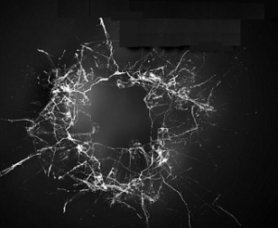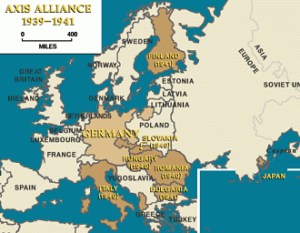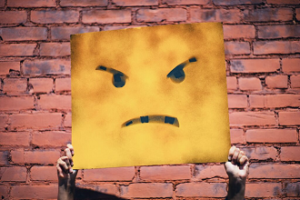
Arquivo para June, 2024
Catharsis and moral cleansing
Political and moral liberalism does not want the term “being clean” to be used, most people who have experienced chemical dependency nevertheless like to use the word and the meaning is deeper than it seems.
term “being clean” to be used, most people who have experienced chemical dependency nevertheless like to use the word and the meaning is deeper than it seems.
Without an inner strength that helps us with frustrations and complex social situations, it is not possible to enter a new state of mind, a change of route, this means that what the Greeks call catharsis occurs.
The term coming from the Greek “kátharsis” means a state of psychic liberation (which can also be physical and moral) in which the human being overcomes some trauma, dependence or fear that comes from a psychic disturbance.
Few realize the value of being morally clean, at least making an effort to do so, the doctor and psychiatrist Antony Daniels who wrote several books about the destruction of culture, what in another way and analysis Adorno called “damaged life” is nothing but the observation of a malaise in civilization as analyzed by Freud or the forgetfulness of Being.
Antony Daniels wrote books under the pseudonym Theodore Dalrymple, in his analysis of the civilizing process he explains: “The first requirement of civilization is that men be willing to repress their baser instincts and appetites: failure to do so makes them, precisely because they are intelligent, much worse than mere beasts” and we have already reached this point.
The idea that we are “freeing” people by releasing their most animalistic instincts is nothing other than enslaving them through the most cruel form of dependence, so it is not a catharsis, but rather a path of difficult return, psychic dependence. some appetite.
In history, due to ignorance, people with leprosy were considered impure and were socially excluded. Today, this impurity is related to vices and moral or chemical dependence on instincts released without the necessary repression.
In a biblical passage from the Gospel of Matthew, a leper approaches Jesus and asks: “Lord, if you want, you have the power to cleanse me”. Jesus reached out his hand, touched him and said: “I want, be clean”. At the same time, the man was cured of leprosy.
Religiosity and liberal culture
Modern liberalism created an environment where many cultural practices that were previously questioned, especially those that ignore social rights and duties, were gradually being released, the idea (in the sense of philosophical idealism itself) of freedom is one that pleases the will, in the sense of rational and practical requirement of universal self-determination, with this morals and ethics are not those that prevent the exercise of evil, but those that please reason.
where many cultural practices that were previously questioned, especially those that ignore social rights and duties, were gradually being released, the idea (in the sense of philosophical idealism itself) of freedom is one that pleases the will, in the sense of rational and practical requirement of universal self-determination, with this morals and ethics are not those that prevent the exercise of evil, but those that please reason.
Thus, it makes no sense for contemporary liberalism to combat usury, extortionate interest rates are practiced by banks, not to mention usury, the fight against public immorality, public nudity and pornography is no longer a moral issue and the various types of health problems, to social well-being has even become a joke in media discourses.
It is also not a matter of puritan moralism, nor of personal taste in relation to the way of expressing oneself and behaving socially, but of debauchery, of public offense to all who want a minimum of public morality, Theodor Adorno wrote about the “Minima Moralia ” in the 40’s, in the sense of how “damaged life” developed into a form of violence and horror in the contemporary world.
There are also forms of bad religious culture, one that lacks a true asceticism that encourages the world towards empathy, healthy social coexistence (also in terms of health in a world intoxicated by the use of alcohol, drugs and toxic substances), without forgetting that The most harmful and terrible thing is the cultural offense, and the culture of violence that reaches its limit in the forms of armed and unarmed wars in the contemporary world.
Regarding the religious aspect, it is worth remembering to everyone who tries to use the religious alibi for antisocial practice, the biblical passage from Matthew 23: “Then I will say to them publicly: I never knew you. Depart from me, you who do evil” and in the passage is a clear reference to preachers who “cast out demons” and “performed miracles” in the name of Jesus.
The toxic narratives that are used for these practices are generally unable to provide a complete narrative, they need to use false examples and even meaningless testimonies to justify the insanity of the practice and permissiveness in relation to public and social morals, they use offense and even public insults that make clear their adherence to exclusion and antisocial behavior public permissiveness, that which refuses coercion and the punishment of antisocial attitudes are also forms of violence by omission.
The result is a psychologically difficult environment, a damaged social life, as expressed by Adorno, and a life in which everything is transitory as seen by Byung-Chul Han.
Pharisaism and Jonah
What the absence of spirituality consists of today, more than the lack of God, says Byung-Chul Han is the fact that everything in life becomes transitory, but also the consequences of a strong polarization in which all moods are concentrated and limit true interiority, true spirituality outside the bubble, in the allegory explored by Sloterdijk in Spheres I, Jonah’s sign is somewhat reminiscent of the biblical passage (Luke 11:29-30): “This generation is a perverse generation: it asks a sign, but no sign will be given to him except the sign of Jonah. Just as Jonah was a sign to the inhabitants of Nineveh, so will the Son of Man be to this generation.”
more than the lack of God, says Byung-Chul Han is the fact that everything in life becomes transitory, but also the consequences of a strong polarization in which all moods are concentrated and limit true interiority, true spirituality outside the bubble, in the allegory explored by Sloterdijk in Spheres I, Jonah’s sign is somewhat reminiscent of the biblical passage (Luke 11:29-30): “This generation is a perverse generation: it asks a sign, but no sign will be given to him except the sign of Jonah. Just as Jonah was a sign to the inhabitants of Nineveh, so will the Son of Man be to this generation.”
Sloterdijk saw the lack of centrality in a dyad, which serves both polarization and polycentrism, that is, an absence of being situated in the world. We remember that the central point of his philosophy is what it means to be in the world, and Jonas who tries to escape his mission ends up in the belly of the whale, that is, his desire to escape the world and his mission, is the idea of taking refuge in a pure interior of which those who practice despiritualized asceticism, try not to being in the world, which is different from Being-in-the-world, a category in which Sloterdijk uses the word “vorhandensein”* to explain his controversy on humanism with Heidegger, who uses the term dasein for Being in the world.
Where was Jonah when he was in the world? Inside the whale. The whale is part of Jonas’s consciousness that provokes him to think about the outside from the inside. Heidegger had already thought about this pure interior of which we are all victims, a radical and intrinsic space, our unique and first dwelling through which all our impressions, thoughts and affections permeate.
The sign of Jonah, the only sign for this generation that seeks a “sign of God” is, therefore, finding this interiority even while being in the world and subject to its dyads (poles) or even polycentrism (half-truths of different narratives) without manage to achieve true asceticism, however Jonah leaves the whale and goes to Nineveh to fulfill his mission.
Thus, the relationship with the outside is a constant tension, and there is no way to escape it, it is not a filter for the truth, but the search for a clearing, for a space where we cultivate our interior, so in Sloterdijk’s vision that helps us, Jonah’s sign is his inner life when he was in the belly of the whale, within his “sphere” in Sloterdijk’s conception.
So it is not the one who shouts Lord, Lord nor the one who lives on external “good intentions” only, it is necessary to live this inner tension and be the Being that he is in the world.
Pharisaism is living on external appearances that do not correspond to interiority, but also “pure” interiority is staying in the belly of the Whale without experiencing external tension.
* the literal translation would be: to be available (in Jonas’ case for the mission).
Sloterdijk, P. (2016) Esferas I: bolhas (Spheres I: bubbles). Translated by José Oscar de Almeida Marques. Brazil, São Paulo: Estação Liberdade.
The bubbles and the other
Several authors wrote about the issue of the Other, unfortunately there is still ignorance about the term, it has been reborn (in my opinion it has always existed in Christian philosophy, patristics largely treats the term as “neighbor” and Paul Ricoeur remembers this), Habermas wrote about the Inclusion of the Other which would be the borders of communities open to all, Byung-Chul Han wrote The Expulsion of the Other, when reflecting on communication today, however Emmanuel Lévinas and Paul Ricoeur treated it with originality and richness.
unfortunately there is still ignorance about the term, it has been reborn (in my opinion it has always existed in Christian philosophy, patristics largely treats the term as “neighbor” and Paul Ricoeur remembers this), Habermas wrote about the Inclusion of the Other which would be the borders of communities open to all, Byung-Chul Han wrote The Expulsion of the Other, when reflecting on communication today, however Emmanuel Lévinas and Paul Ricoeur treated it with originality and richness.
We have already posted something about Lévinas read by Byung-Chul Han which recalls his concept of “il y a” in which he analyzes a functional aspect of the ethical relationship, making it transcend. It must be said that it is not Hegel’s ethics, for him the principle the exit from being to existence, passing from being to its raw state, is leaving the solitude of “il y a”, thus giving meaning to existing.
From Paul Ricoeur we post in some excerpts the relationship between the “partner” and the neighbor, the first is utilitarian and the second really “transcends”, but his seminal work is the Self as another (published in 1990, in Portuguese on Brazil in 2014 by Martins Fontes), he is careful to ensure that the self is not left aside, since it is common to see the Other eliminating the self, even though in the phenomenological relationship an “epoché” is always necessary. ”, but placed in parentheses.
But here we want to move on to the concept of bubbles in Spheres I by Peter Sloterdijk, he exposes his spherology, a way of defining and problematizing what it means to “be in the world”, since we come from a sphere that is the maternal womb, and leave to the sphere of our planet, and he creates a concept of immunology to give meaning to his idea of a social means of communication that is co-immunity. It is curious that the term came well before the pandemic.
It is curious that the author, who does not see religion as something objective, does not fail to analyze in his work concepts that come from the “culture” of Christianity when speaking, for example, of a despiritualized asceticism that applies to many religious people today, and of The Matrix in Gremio (on the mother’s lap, a clear allusion to Mary) and here we highlight the Eucharist (it is not the orthodox concept, obviously).
When talking about bubbles, a special topic is “Of Eucharistic excess”, this mutual incorporation is described in illustrative episodes that constitute the European tradition of cordiality in his view, which for us Latins could be an adjective of miseri-cordis, has a heart that humbly welcomes the heart of others, and its “excess” would be better understood.
It narrates three episodes on this topic, the first is from the period of the chivalric troubadour of the 13th century by the poet Conrad of Würzburg, in which the impossible troubadour adultery of a knight and a lady is brought to fruition only with the unconscious consummation of the boy’s heart by the girl, of course it’s about human love here.
In second example, the author also deals with the testimony of Raymond of Capua (1330-1399) that gains chorus, in which Catherine of Siena (a very wise Catholic saint) who has her heart exchanged for that of Christ himself revealed, marking the spherical communion of the human with the divine, and here we understand its adjective of “eucharistic excess”.
The third is more philosophical and takes up Plato’s classical philosophy, an adaptation made by Marcílio Ficino of Plato’s Symposium, with the influence of medieval medicine he imagines that Phaedrus penetrates, with a clear medieval adaptation, with blood vapors that came from his heart and extrapolated from their own eyes, the others of Lysias, with this inflates his heart making him fall in love with Phaedrus.
Lysias’ speech, in the Platonic dialogue Phaedrus, talks about the enchantment caused by the art of using logos beautifully, with the intention of persuading, he elaborates a beautiful and “logical” speech to say that it is more advantageous to give oneself to someone who is not in love than a lover, he exerts a phenomenon called apathê on Phaedrus.
Sloterdijk’s important point is that we are all subject to our bubbles, our preconceptions and only with this resource thought by Lísias, seeing the other non-lover and not close, as a possible delivery can we begin a process of rapprochement, in the philosophy of Hans-Georg Gadamer the “fusion of horizons”.
What perspective do we have on the different Other and how can we carry out an “apathê” that becomes a favorable and interesting encounter, a possible communication.
Sloterdijk, P. Spheres I (2016). trans. José Oscar de Almeida Marques, São Paulo: Estação Liberdade.
The war could spread to the East
The inclusion of more protagonists in a war environment encourages its escalation, and Russia’s response to the meeting in Switzerland was immediate.
environment encourages its escalation, and Russia’s response to the meeting in Switzerland was immediate.
Putin met with the president of North Korea, one of the most closed and warlike countries in the world, and then went to North Vietnam in search of cooperation for the war in Ukraine, South Korea’s reaction was immediate, the South president -Korean Yoon Suk-Yeol stated: “It is absurd that two parties with a history of launching invasion wars, the Korean War and the war in Ukraine, now promise mutual military cooperation based on the premise of a preemptive strike by the commonwealth. international situation that will never happen”, however it is a clear threat.
The document called the “Comprehensive Strategic Partnership Treaty” has the same spirit as the North Atlantic Treaty Organization (NATO), which provides assistance from the entire bloc to any attack that a member suffers, Russia already has the partnership of Belarus, and This is how the alliances that preceded the second war seem to have been formed, at the time the Axis was Germany, Italy and Japan, and later Bulgaria, Croatia, Hungary, Romania and Slovakia (Finland, which did not participate) also joined forces. Stalin of Russia even agreed to the agreement and then, betrayed, he became an enemy of the Axis and joined the Alliance that was fighting them (USA, France and United Kingdom).
One can imagine that this climate was absurd, people who lived in peace allied themselves in this way, but if we look at our daily lives today it is no different, if we look at the almost always polarized vision and creating narratives for wars we can understand how this climate installs, wanting peace is also an option and few think so, at this moment the Korean president highlights in his speech the clear idea that the country sees no reason for war, but does not rule out sending aid to Ukraine and thus a new pole of conflict comes up.
Reacting passively in a conflict does not mean omitting oneself or otherwise, it is the toughest position because it shows that there are mistakes whenever the resource is war, reading a narrative is not the narration, as stated by Byung-Chul Han and Walter Benjamin (The narrator), remember that the story told by Herodotus of King Psammenit “serves as an example of his art of narration” (Han, 2023, p. 21).
In it the Egyptian king Psammenit when defeated in war by the Persian king Cambyses, a after seeing her daughter reduced to a servant and her son being taken to be executed, she remains with her eyes to the ground, but upon seeing among her servants prisoners, an elderly and frail man “hit her head with his fists and expressed deep sadness” (Han, 2023, p. 22) because perhaps I would prefer to be in that poor man’s place, war destroys our deepest humanity, the narrative distorts and dehumanizes history.
Therefore, a sensible, serene narration is needed, the current war potential of the world can lead us to the most serious civilizational crisis far beyond barbarism and could reach extermination or an insurmountable limit of hatred and violence, we have hope for peace if there are still peaceful people. The biblical reading says: “Blessed are the peacemakers, for they will be called children of God!” (Mt 5, 9).
Han, Byung-Chul (2023). A crise da narração. Translate: Daniel Guilhermino. Brazil, Petrópolis: ed. Vozes.
The Just, wrath and serenity
Martino Bracarense, an author from the 5th  century AD who is little known but is one of those responsible for the days of the week in the Galician-Portuguese language Monday, Tuesday, etc., stated that “Anger transforms all things that are best and fairest into their opposite”, There are many philosophical, psychological and even poetic reflections on anger, William Shakespeare stated that: “Anger is a poison that we take waiting for the other to die” (the photo on the side is by Andre Hunder on unsplash).
century AD who is little known but is one of those responsible for the days of the week in the Galician-Portuguese language Monday, Tuesday, etc., stated that “Anger transforms all things that are best and fairest into their opposite”, There are many philosophical, psychological and even poetic reflections on anger, William Shakespeare stated that: “Anger is a poison that we take waiting for the other to die” (the photo on the side is by Andre Hunder on unsplash).
In stormy times, to maintain justice and serenity, a great effort of character and temperance is necessary because the normal thing is to react to the pain of hatred with some form, even if disguised as hatred, Aristotle stated: “a desire, accompanied by pain, to perceived revenge, due to a perceived disregard towards an individual or his neighbor, coming from people from whom disregard is not expected” (Aristotle’s Rhetoric).
What does accompanied (anger) by pain mean? This requires Aristotle’s definition of pathê: “emotions are all those things because of which people change their thoughts and disagree with their judgments, being accompanied by pain and pleasure, for example anger, pity, fear and all other things similar to their opposites”, is clearly not an exhaustive definition of anger, as it would require psychological and pathological elements and a more in-depth analysis of the topic.
The important thing is to know that it: escapes justice, produces intemperance and is placed in a sequence of structural hatreds, it ends up creating a total absence of serenity, of capacity for reflection and, in the end, it produces a great source of injustice and even even psychopathologies.
Another point is to think about the antidote to this state of mind, often cultural, structural and produced by those who believe they defend peace, of course in essence these same individuals are themselves pathological cases, because disguised anger, or as the popular saying goes “distilled poison”, unlike medicine, is not antithetical, it is poison in continuous and progressive doses.
Where then to find serenity? The answer is simple in hope, the very hope that waits, that breathes and that meditates and contemplates, a theme exhaustively elaborated in Byung-Chul Han in almost all of his themes, In the swarm where he exhorts “respect” as the only form of symmetry, silence and contemplation in “Vita Contemplativa” and the concept of affective tone in his work “Heidegger’s heart: about the concept of affective tone”, although he never sites the term directly, I think that is what he ultimately intends to contribute to contemporary thought to recover its ability to think, contemplate and Be.
The religious thought of our time also needs to recover more than serenity, sobriety, because they seem to be enveloped by certain intoxications of our time, as stated by Judeo-Christian thought, the wind came and God was not there: “after the earthquake there was a fire , but the Lord was not in it. And after the fire there was the murmur of a gentle breeze” (1 Kings 12) and the storm of Jesus among the sleeping apostles and a storm happening is also famous, He wakes up and tells the sea to calm down to the astonishment of the apostles (Mk 4,39).
The Just and reconciliation
Justice practiced only in a legalistic way and without any mercy is only human and does not presuppose social peace, it incites hatred between adversaries.
without any mercy is only human and does not presuppose social peace, it incites hatred between adversaries.
The social contract established in modernity, actually comes from the idea of Absolute by the first contractualist John Hobbes (1588-1679) and also from the idea of Machiavelli’s The Prince, in fact transfers all rights and justice to the State and this does not mean that he does not practice injustice, in modernity we know that he does.
Also at the height of idealism, Hegel (1770-1831) developed a teleological idea of the Absolute, which is an abstract figure even though he characterizes it as a “substantial power”, which at the moment of its subjectivity and singularity of this concept manifests itself as a universal substance, which through its abstraction If it is effective as a kind of singular self-awareness, replacing the idea of essence of Ontology, it is something abstract indeed.
The idea of justice translated in the Just by Paul Ricoeur, Habermas and other authors is the idea that it is not the singularity of a substance, but must be embodied in something concrete which is the Just, this potentially can and should develop within what is moral and ethical, in classical antiquity the philosophers, in particular Plato who sought education for citizens, he should have the virtues, aretê, which in its most precise meaning means excellence, and Aristotle develops it as phronesis, which is the politician.
It seems like a lot of abstract theory, in our view Hegelian idealism really is, but the virtues and political excellence of each person is not abstract, it means the ability of each person to exercise politics considering the rights of the other and the ethical responsibility towards social goods, in particular, the common good.
Reconciliation is always that conflict situation where it is possible to review each person’s social responsibilities and the different ethics of social positioning, if someone commits a serious or minor offense, it is always possible to find the Just, that point at which the parties involved can establish a type of private social contract, minimizing damage or loss to the parties involved.
The biblical reading says if you do not reconcile with your brother, he will take you to the judge, the judge to the court and from there you will go to prison, so it is better to reconcile first.
The Just sees the Other and is delicate
Paul Ricoeur in his two volumes of The Just will dedicate himself to unveiling this relationship, which involves power relations, starting with the cry that is considered fair: “This is unfair!” he says in the preface of his book in reference to the first chapter of R.J. Lucas’s book “On the Justice” (1955) and recognizes it as a proclamation of a protest.
dedicate himself to unveiling this relationship, which involves power relations, starting with the cry that is considered fair: “This is unfair!” he says in the preface of his book in reference to the first chapter of R.J. Lucas’s book “On the Justice” (1955) and recognizes it as a proclamation of a protest.
As in much of Paul Ricoeur’s work, it is in recognizing the face of the Other that we must understand the principle of Justice, but he makes a long analysis of John Rawls’ work “Theory of Justice” because it does not ignore power relations and their influence on the vision of current justice, even Habermas analyzed it.
The experience of injustice is made by ourselves as well as by other individuals and even more so by human groups, especially those who are at war because they consider the theft of their rights to be serious, but the experience of injustice requires deep reflection, especially in those cases where there is violence against victims and social injustice.
Ricoeur takes up Aristotle to analyze the “good life”, but it is necessary to clarify that it is not the pejorative sense of good life of scoundrels and opportunists used in common sense, in Aristotelian and ancient Greek language the good has an eminently ethical meaning, that is , the good that one seeks is inseparable from the good of the other, thus seeking peace and not conflict or the usurpation of goods as Eduardo Galeano classifies all wars, it is beyond any reprehensible selfishness, which demeans the subject, preventing him from achieving and be respected on a moral level.
In the essay truth is justice, from Justo 2, Ricoeur refers to the same expression that serves as the title of his book The other as a self, where he comments: “The formula of « Self as an other» is in this sense a primitively ethical formula, which subordinates the reflexivity of the self to the mediation of the otherness of the other.”
There is a deontological dimension that is not far from the theological in his thinking about the Just, Ricoeur’s ethics are not limited to the monologism inherent to Kantian formalism, present in John Rawls, at the same time that he refuses to appeal to feeling, let’s say to “heart” has a dimension of “delicacy” in respect for the Other.
Byung-Chul Han remembers in his book “On the exam” that only one relationship is symmetrical (we would say horizontal, without the power relationship): “respect” and it is this respect that leads us to understanding the Just in relation to the Other.
Thus, those who practice justice rarely seek the spotlight or their own shine, they know that in essence what they do is a relationship of respect for the Other, different and diverse.
Ricœur, P. (1995) Le Juste 1. Paris: Éditions Esprit.
New record for the blog, ontology and peace
We surpassed 50 thousand monthly hits on this blog, it should reach close to 60 thousand at the end of the month, it is already a new record, the last one in a long time was above 30 thousand.
blog, it should reach close to 60 thousand at the end of the month, it is already a new record, the last one in a long time was above 30 thousand.
I credit this to our current developments on ontology, the resumption of the question of Being hidden by the absence of a philosophy that understands Being (the things that are present in real life) and contemplates the whole man, revealing the relationship with Being, in our personal joke: the Being of entities (in portuguese appear Being sick).
We do not fail to touch on the issue of contemplation, the need for a true spiritualized asceticism and an authentic religion that preserves the life and dignity of all.
It is in connection with our analyzes and constant calls for peace, the escalation of conflicts worldwide puts civilization itself in crisis and how in the period before the war many narratives distort the true causes and dangers of war, new types of colonialism and discourses that ignore the Other, so in addition to frequent readings of Byung-Chul Han and Heidegger, central points of our posts, we do not fail to analyze everyday life and other authors such as Paul Ricoeur and Edgar Morin.
I thank the readers and we will keep the website and blog independent and without any sponsorship.
The clearing and the forest
Ontology is that scientific vision where Being  must be present, even if wrapped and unfolded around beings, beings are that which designates everything that “is”, that is, it refers to the present participle of the verb to be, thus Heidegger will thinking about what the being of beings is, in short, everything that is related to the world we live in, but never forgetting that it is in it that Being lives.
must be present, even if wrapped and unfolded around beings, beings are that which designates everything that “is”, that is, it refers to the present participle of the verb to be, thus Heidegger will thinking about what the being of beings is, in short, everything that is related to the world we live in, but never forgetting that it is in it that Being lives.
Thus the philosopher thought of truth from the Greek word alétheia (a- no, lethe – hidden), this is the act of unveiling the truth of Being and its relationship with beings in time, truth is then distinct from the common concept that considers it as an objective descriptive state.
For Heidegger, however, there is a fundamental difference between Being and Entity, Being refers to the foundation of existence and ways of existing, while Entity corresponds to concrete existence, or, human reality, as a presence in the world, thus generally we think about the Being of Entities (the cacophony is intentional here) and not Being as Being.
Being as Being is this being-there (dasein without an exact translation, in my view, into Portuguese), the one that “exists” being the only entity that exists, the others are, but do not exist (as consciousness , or more recently as sentience) even though animals can have emotions and affective reactions.
In other words, sentience is the ability of beings to feel sensations and feelings consciously, thus avoiding negative, violent or temperamental reactions.
So the clearing is that encounter with your own truth, in the middle of the forest, there is a space where everything is revealed and our true Being meets and encounters the Other.
The being of the being, projected onto merely mundane things: money, facilities and achievements, finds a space for its active and contemplative life, everything around it is revealed, re-enchanted and has meaning, it is not easy or simple because the forest is still there and we continue to explore it in search of “beings” and we even find them, but again we have to go in search of new ones because it is not yet the clearing, it is different from Plato’s myth because there is a dual world there: the world of ideas and the world of the senses.
Modern man needs to place himself at the center of his Being and have a relationship of transitory ownership with entities, everyday things and the real world.
Modern man needs to place himself at the center of his Being and have a relationship of transitory ownership with entities, everyday things and the real world.
In the biblical narrative we must always love the Other, even asking and praying for those who do not want our good, this limits us from shooting at beings as Being.

